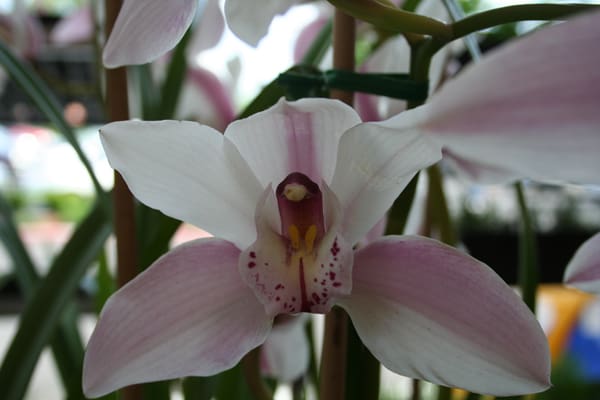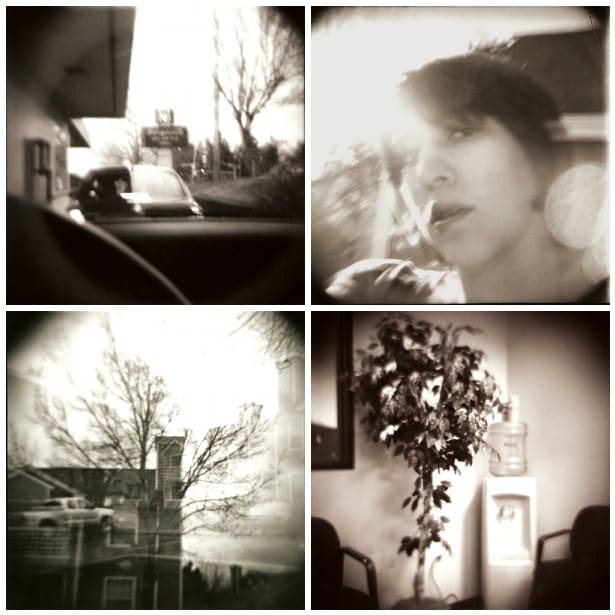I have seen the light and I am never going back.
Let’s briefly talk about what they both are. I’m sure you have an idea but I’m gonna throw it out there anyway. The RAW format is not really standardized, but in a nutshell, it’s minimally processed data from an image sensor, such as the one in a camera. It’s something like a digital photo negative… it contains the information needed to make an image. Then there’s a JPEG, which is more like the final printed picture. It’s an image that you can look at. A final product, persay.
Many cameras (well, maybe not the point-and-shoots so much, but most of the digital SLRs) give you the option to shoot in JPEG, RAW, or both in some cases. I admit, I shot in JPEG for a long time. But for people that edit their photos (much like how film photographers used different methods when developing their film for different effects), RAW is the way to go. Allow me to show you some visual examples.
Here’s a flower photo I took today.

It’s a decent picture, but a little boring and the colors don’t look nearly as vibrant or natural as they actually are. So, I spruced up the RAW file a bit.

Now that’s better. Yay better! But, just for curiosity’s sake.. let’s see what happens if I apply the same exact changes to a JPEG version of the original image that I applied to the RAW version of it.

Yes. Not so good, right? That’s because RAW files store more information than a JPEG. The RAW file doesn’t have a set white balance, and it hasn’t had saturation or contrast levels forced on it, or anything like that, so it can be changed in ways that a JPEG can’t, because the JPEG only kept the information that was visible at the time, instead of the information that could have been used to make adjustments. RAW is also 16 bit data as opposed to 8 bit, so it has 65,536 levels to work with instead of just 256 like the JPEG. It’s a little hard to explain what the difference is between the information.. but basically, there are not nearly as many things set in stone in a RAW file, so you have more control over the editing.
Another good example is in how you can edit the exposure. Today when I was out shooting, I had forgotten to adjust the manual settings on my camera when I went outside after shooting inside. This, of course, led to a painfully over exposed picture. Had I only been shooting in JPEG, the image would have been ruined forever, because you just can’t turn a white blur into something that makes sense. The RAW image however, stored more information about what the image looked like before it crossed the line to overexposed. So I was able to pop the image into Lightroom and turn the exposure down to rescue it. Allow me to show you what happened when I took the overexposed image and edited the RAW, and the JPEG versions of it.


So as you can see, there are many benefits to shooting in RAW. The only downside is that they take longer to write, and they are large files. They also require special software to read them. Lightroom is a great program for it. If you don’t do any post-processing on your photos, then it won’t be worth it to shoot in RAW. But if you do… try it out. I think you’ll like the amount of control you get with a RAW file over the JPEG.
7 Comments
